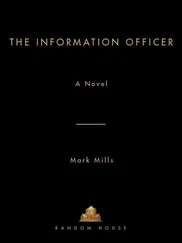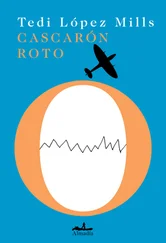Mark Mills - Amagansett
Здесь есть возможность читать онлайн «Mark Mills - Amagansett» весь текст электронной книги совершенно бесплатно (целиком полную версию без сокращений). В некоторых случаях можно слушать аудио, скачать через торрент в формате fb2 и присутствует краткое содержание. Жанр: Старинная литература, на русском языке. Описание произведения, (предисловие) а так же отзывы посетителей доступны на портале библиотеки ЛибКат.
- Название:Amagansett
- Автор:
- Жанр:
- Год:неизвестен
- ISBN:нет данных
- Рейтинг книги:5 / 5. Голосов: 1
-
Избранное:Добавить в избранное
- Отзывы:
-
Ваша оценка:
- 100
- 1
- 2
- 3
- 4
- 5
Amagansett: краткое содержание, описание и аннотация
Предлагаем к чтению аннотацию, описание, краткое содержание или предисловие (зависит от того, что написал сам автор книги «Amagansett»). Если вы не нашли необходимую информацию о книге — напишите в комментариях, мы постараемся отыскать её.
Amagansett — читать онлайн бесплатно полную книгу (весь текст) целиком
Ниже представлен текст книги, разбитый по страницам. Система сохранения места последней прочитанной страницы, позволяет с удобством читать онлайн бесплатно книгу «Amagansett», без необходимости каждый раз заново искать на чём Вы остановились. Поставьте закладку, и сможете в любой момент перейти на страницу, на которой закончили чтение.
Интервал:
Закладка:
He knew what happened to the body after death, he knew that decay was in fact life for a multitude of other creatures. He knew that the deeper you buried a corpse, the slower the process of decomposition. He knew that in the heat of summer it raced ahead, and in the bitter chill of a mountain winter it ground almost to a halt. He knew all this because he had gone out at night to recover the bodies of his fallen comrades.
They were rarely whole. Often days would have passed before any attempt at recovery could be made, time enough for the scavengers that inhabited the dense Italian macchia to feast away at leisure, to drag off the limbs, or bits of limbs, cleaved away by a mortar blast or a burst of fire from a German 88.
Had his unit not been operating behind enemy lines for so much of the time, there would have been others to perform the grisly task. But the boys from the Grave Registration Service were deemed lacking in the necessary skills to move around undetected in enemy territory, and only one of their number had been assigned to Conrad’s Company. He was a young corporal from southern Illinois by the name of Harold Bunt, although everyone called him the Professor because he’d broken off his studies to go to war.
The Professor’s orders were to co-ordinate the retrieval and dispatch of the dead from the safety of their own lines, assembling the bodies as best he could, then shipping the canvas-wrapped packages back down the mountain on mules. He soon ignored his orders, though, extending his remit to assist in the recovery of the dead. He did this selflessly, aware of the terrible toll it was taking on the soldiers.
To the Professor, those weren’t his buddies out there, they were just KIAs, brave men killed in action who’d earned the right to a decent burial and a small white cross with their name on it. Circumstances permitting, he extended the same respect to the enemy, burying their dead in shallow graves where they’d fallen, to be recovered at some future date by either side, depending on which way the territorial pendulum swung. This courtesy was the cause of some surprise to the fighting men, boiling over into anger on a couple of occasions. But the Professor assured them it was customary practice for the men of the Grave Registration Service and he saw no reason to abandon it now.
He kept to himself, eating alone, wary of forming friendships, conscious that his role made him a figure of some suspicion. As a scout, Conrad came to know him better than most, guiding him over the hostile terrain on nocturnal forays whenever there was a lull in the fighting. Nothing pleased the Professor more than sneaking past an enemy foxhole—hearing the voices, smelling the cigarette smoke—in order to bring a KIA home. It amused him to imagine the look on the Germans’ faces the next morning when they discovered the body was gone.
For Conrad these missions were a welcome change from the normal demands of a night patrol. It was a relief to just slip by in the darkness, no obligation to draw his knife, drop into the hole and silence the enemy’s murmurings.
They started spending more time together, playing chess with a set the Professor had recovered from the rubble of a bombed-out farmhouse. Each time the regiment advanced they split the chess pieces between them so that only half the set would have to be replaced should either man step on a mine or take a direct hit from a mortar or a shell.
For the first few weeks their games were conducted in near silence, each man alone with his thoughts, his strategy. But with time their friendship found a precarious footing, the only kind possible under the circumstances. Experience dictated that to know a man too well was only to store up unnecessary grief for the future. As the fighting increased in ferocity Conrad came to appreciate the true value of their chess games. They permitted him to keep functioning at a certain level of aggression, the right combative pitch. He feared what might happen if he ever allowed himself to come down in between the fire-fights, to think about what he was doing, what he had done. Chess, it seemed, was his way of dealing with things, of keeping going. Others had theirs.
Some talked big and brave and carved notches into their rifle butts. Others retreated into themselves, drawing on resources they never knew they had. Others sought refuge in humor, black as the night at a new moon. You did what you did to get through, that was all. The Professor was no different, turning to science for his crutch, laying his theory on Conrad late one night while they sheltered in a church.
Men died, said the Professor, and when they died the microscopic creatures that inhabited their bodies suddenly turned on them and consumed them. Everyone knew that they came first—the micro-organisms, the protozoa, the bacteria. That’s what all life had once been about. But maybe it still was, maybe the evolution of life was a load of bunk. Life, the life that mattered, was the same as it had always been: microscopic. Only its external appearance had changed, the husk it had molded around itself, the tendrils it had sent out—legs to carry it to better feeding grounds or away from danger, hands to kill on its behalf and nourish it. We were like servants, he went on, laboring under illusions of selfimportance, convinced that they’re the true masters of the house. In truth, we nourish the bugs, and then we die, and then they devour us, their vehicle, before moving on.
Conrad could remember thinking at the time that what the poor fellow needed was a spell of leave, a few days’ furlough in Naples—take in a show or two, flirt with some Red Cross girls. But now he found himself reaching for what the Professor had said that night, trying to see sense in it, draw some kind of solace for what had happened to Lillian, for what was happening to her in that coffin.
It didn’t work.
And he knew then that he would break the pledge he had made to himself, the vow muttered through clenched teeth in the garden of the English hospital, beneath the dying heat of a September sun, the long grass in the orchard littered with fallen fruit.
In that moment, he saw with absolute certainty that he would take another human life.
‘Hello.’
Conrad spun, startled. An elderly woman was standing behind him, frail and stooped, her thinning silver hair as light as goose down.
‘Did you know her?’ she asked.
‘No.’
He saw his lie reflected back at him in her rheumy eyes. How long had he been standing at the grave, adrift on his thoughts? Five minutes? Twenty? More? Hardly the actions of someone with no association.
‘She drowned,’ he said. ‘I found her.’
‘Oh, you’re the fisherman.’
‘One of them. I just came by to pay my respects.’
She seemed satisfied with his response, and turned towards the grave. ‘A tragedy. She was a right beauty.’
The East Hampton Star had run a small piece, along with a picture of Lillian taken at some charity event at the Guild Hall, smiling as always.
‘Kind with it. Always found time to speak to an old lady.’
Conrad cast an eye over the washed-out colors of her dress, the cheap handbag, the swollen feet squeezed into scuffed shoes, and he tried to imagine her moving in Lillian’s circle.
As if reading his thoughts, the old lady turned to him. ‘I used to see her here.’
‘Here?’
‘I come every day, sometimes twice. Hubert likes me to come, you see, even if it’s for a few minutes, just to say hello. Oh, I know it sounds silly, and maybe it is, but I live close, on Osborne Lane, just along from the crossing, so it’s no great hardship, though sometimes my joints protest when the wind’s off the ocean.’
Out of politeness, Conrad allowed her to finish.
‘She used to come here?’ he asked. ‘To the cemetery?’
Читать дальшеИнтервал:
Закладка:
Похожие книги на «Amagansett»
Представляем Вашему вниманию похожие книги на «Amagansett» списком для выбора. Мы отобрали схожую по названию и смыслу литературу в надежде предоставить читателям больше вариантов отыскать новые, интересные, ещё непрочитанные произведения.
Обсуждение, отзывы о книге «Amagansett» и просто собственные мнения читателей. Оставьте ваши комментарии, напишите, что Вы думаете о произведении, его смысле или главных героях. Укажите что конкретно понравилось, а что нет, и почему Вы так считаете.











